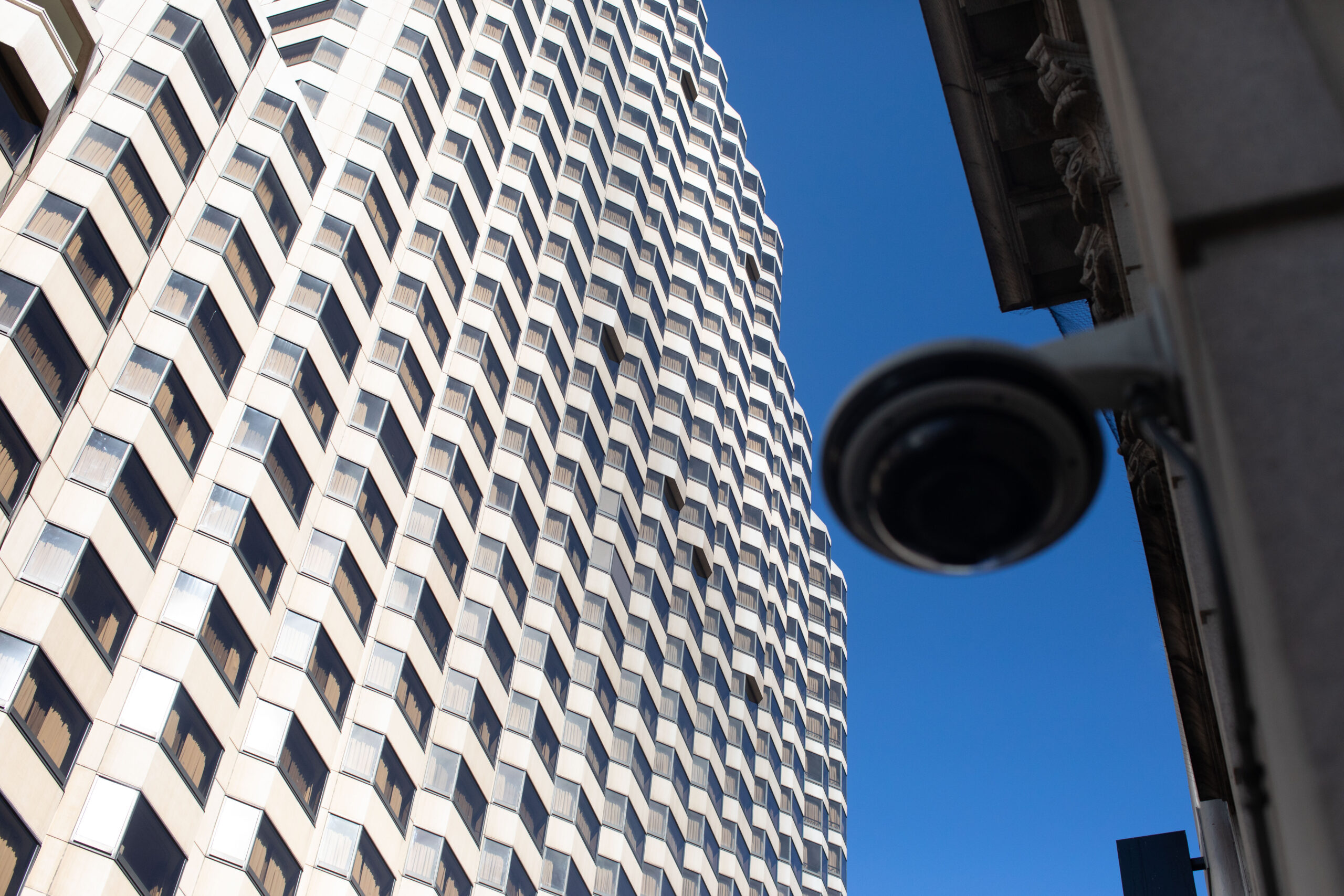Discussion of expanding the San Francisco Police Department’s access to private surveillance cameras took up almost 90 minutes of Tuesday’s Board of Supervisors meeting, ending with a 7-4 vote to pass the controversial ordinance.
Opposing the ordinance were supervisors Hillary Ronen, Connie Chan, Dean Preston and Board President Shamann Walton.
Ronen cited the rise of authoritarian groups in national politics to justify concerns over rules she termed as too “loosey-goosey” and “giving away too much power” to police, particularly over allowing access to live feeds during large events like protests.
Walton aired similar concerns over continued potential of privacy and civil liberties violations, calling the policy “a can of worms,” and saying “these kinds of policies are what I fear the most, especially as a law abiding black man.”
In response, Supervisor Aaron Peskin cited the long process of discussion and compromise that led to the present ordinance, including the threat of dueling ballot measures that was avoided. Members Ahsha Safai and Matt Dorsey cited the need to deter the rise of organized retail crimes and to align with policies in neighboring cities.
Member Catherine Stefani cited concerns over police staffing and a public demanding “a more proactive approach” to crime as factors behind her support for the policy.
Hunters Point Shipyard Report
A resolution responding to the recent Civil Grand Jury report on environmental problems at Hunters Point Shipyard was continued last week and will be revisited on Sept. 29 by the Government Audit and Oversight Committee.
The report calls for an independent study of current policy over the shipyard, citing what it calls “serious but poorly understood risks” from effects of sea level rise on the ability to contain pollution on the site.
Expansion of Produce Market Cleared
Speaking of the Bayview, a resolution to amend the lease for the San Francisco Wholesale Produce Market passed unanimously.
The resolution clears the way for the market to obtain financing which, together with $5 million obtained by state Sen. Scott Wiener, will enable more expansion and improvements.
Currently home to over 30 produce wholesalers, the sprawling Jerrold Avenue facility has been a major food source for city businesses for well over a century.
Firehoses and Leaf Blowers
Supervisors also unanimously approved a resolution to devise a financing plan for expanding San Francisco’s Emergency Firefighting Water System to underserved neighborhoods by year’s end. The resolution was sponsored by west side supervisors Gordon Mar and Connie Chan. A 2019 Civil Grand Jury report, along with neighborhood leaders, argue that it hasn’t caught up with the city’s historical expansion.
“Urging,” of course, means the resolution is ultimately non-binding, and city staff noted in a committee presentation last week that there’s already a lot on the SF’s bond funding plate in a post-pandemic recovery.
Supervisor Myrna Melgar’s “Healthier, Cleaner, Quieter Communities Act”—which will ban gas-powered leaf blowers and other landscaping gear by city agencies starting in July 2024 and for everyone else in January 2026—was also approved. It includes a buyback program to encourage compliance with the new green ordinance.
Roll Call: Labor Pains
After the long surveillance debate, few supervisors had new business for Roll Call.
Dorsey requested a hearing on bicycle parking, and Safai and Peskin asked that the city attorney draft legislation for a seismic safety program for concrete buildings.
But it was Supervisor Rafael Mandelman who apparently wasn’t satisfied with dominating last week’s Roll Call, and brought even more pressing new business. That included a request, made with Walton, for an expedited hearing next week on labor issues at San Francisco International Airport.
Members of UNITE Here Local 2, whose members serve food and beverages at airport concessions, apparently haven’t had a raise in three years. Their average pay is around $17 an hour—barely above the city’s minimum wage—and when combined with other issues, according to Mandelman, some end up making less.
More than 40 protesters were arrested at a demonstration at the airport late last week, including Supervisors Chan and Mar, and District 6 supervisorial candidate and local Democratic Party Chair Honey Mahogany.
Joined @UniteHereLocal2 with @LorenaSGonzalez @JoshBeckerSV @UFCWWSC8 @honeymahogany @SanMateoLabor @sobaylabor and dozens of workers as we got arrested to bring attention to the SFO food service workers who have been working w/out a contract since 2019 & no raise since 2018! ✊🏽 pic.twitter.com/Zu45mkmLdG
— Ash Kalra 🌱 (@Ash_Kalra) September 17, 2022
Mandelman also announced a letter of inquiry to the Department of Public Health and San Francisco Superior Court on plans to implement “Care Court” conservatorships under state legislation recently passed in Sacramento.
“This program represents a conundrum for San Francisco,” Mandelman said. “We clearly need to try something new for people not getting the help they need, but it’s unclear how much impact the program will actually have, or whether we’re capable of implementing it.”
